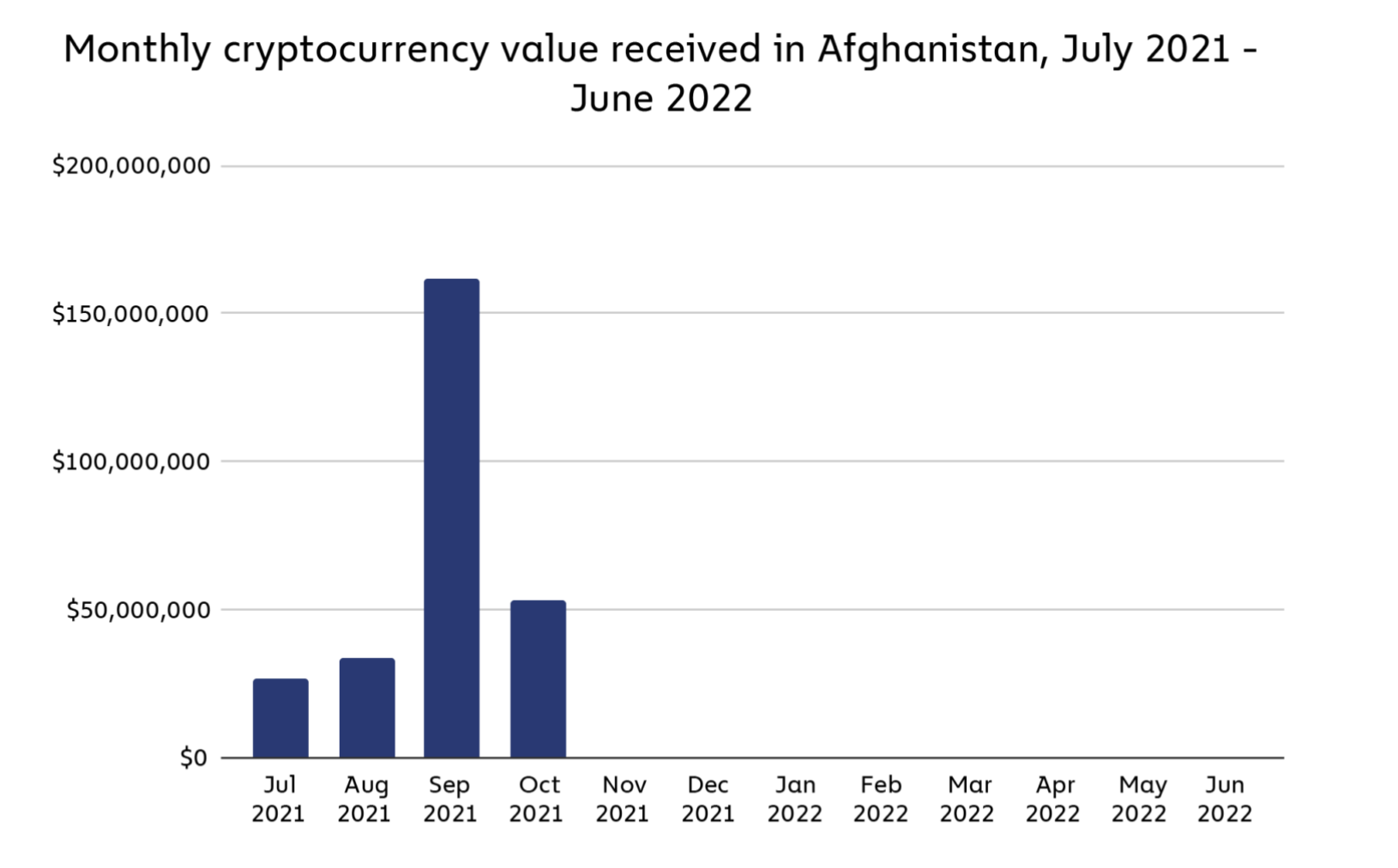This month, Afghanistan's central bank outlawed the use of cryptocurrencies nationally, and the Taliban government has detained numerous traders who disobeyed instructions to halt dealing in digital coins.
Why did Afghan citizens choose Cryptocurrency?
Several Afghans turned to cryptocurrencies to protect their riches and keep it out of the Taliban's hands, prompting the crackdown. Due to the sanctions placed on the terrorist organization, the nation is cut off from the global financial system, and cryptocurrency has become a common means of transferring money within and outside the country.
According to a recent study, the Taliban's takeover of Afghanistan has had a huge chilling impact on the local bitcoin market, effectively putting it to a standstill. In a report published on October 5 by blockchain analytics company Chainalysis (1), it was stated that the Middle East and North Africa (MENA) region would experience the highest growth in the cryptocurrency market in 2022, but that Afghani crypto dealers would have three options: flee the country, cease operations, or risk arrest.

According to the analysis, cryptocurrency worth received in August and September of 2021 peaked at almost $150 million when the Taliban assumed power before dropping the following month precipitously. Before the invasion, Afghani people often received $68 million in monthly cryptocurrency, mostly used for remittances. After the takeover, the amount decreased to less than $80,000. Following the Taliban takeover, Afghanistan ranked 20th on Chainalysis's 2021 crypto adoption index published in October 2021 (2), is now at the bottom of the list.
What is the present situation?
The shift is because the Ministry for the Propagation of Virtue and the Prevention of Vice, which is in charge of enforcing Islamic law throughout the nation, has been re-established. According to Chainalysis, the organization compared cryptocurrencies to gambling and declared them haram, which is against Islamic law.
According to a source who wished to remain anonymous and who mentioned a significant amount of the activity still occurring in the nation involves money laundering from illegal sources like bribery or narcotics. The person stated that young individuals with a few hundred dollars are a tiny part of those who day-trade digital assets.










